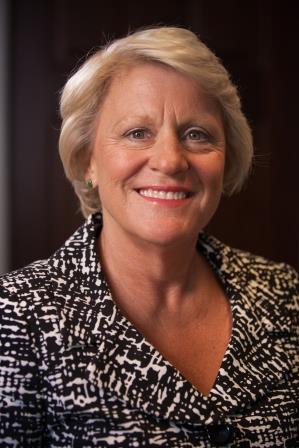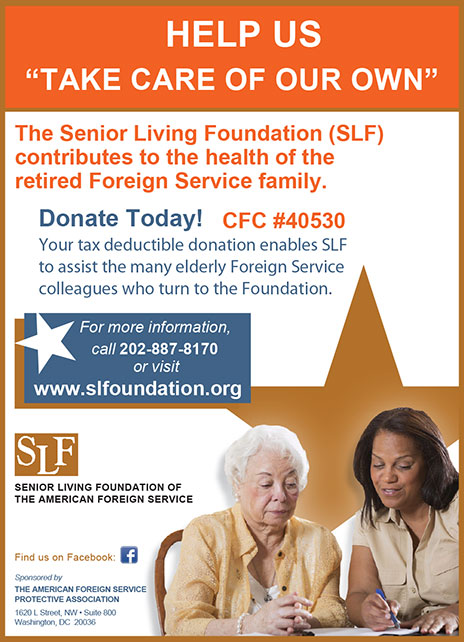Protecting the Career Path
President's Views
BY BARBARA STEPHENSON

My last few columns have focused on outreach—AFSA’s work, as the voice of the Foreign Service, to refine a compelling message to convey the proud story of the Foreign Service to the American people. That work continues and is gaining momentum.
This month, I focus on our commitment to work for a healthy, attractive Foreign Service career path. I am increasingly convinced that one of AFSA’s most important roles is to serve as the principal advocate for the long-term health of the career Foreign Service.
The Foreign Service Act of 1980—which begins, “The Congress finds that a career foreign service, characterized by excellence and professionalism, is essential in the national interest”—provides both the legal foundation for the Foreign Service and a stirring reminder of its importance to the well-being of the nation we serve.
I begin from the conviction that strong American leadership is essential, perhaps now more than ever, or at least since the defining moments following World War II. I believe America is the indispensable nation and must remain so, even as the global landscape shifts and power becomes more diffuse.
I believe just as deeply that a strong, effective American foreign policy rests on the shoulders of a strong Foreign Service comprised of career professionals who deploy abroad to protect and serve American interests, often by making common cause with the people and leaders of other countries.
This is, as I have acknowledged before, extraordinarily demanding work. It requires us to move at least every three years, to cope with unhealthy and dangerous environments, to master foreign languages, cultures and political systems—and to master the intricate interagency dynamics of our own system.
A strong, effective American foreign policy rests on the shoulders of a strong Foreign Service.
This extraordinarily demanding career requires America’s best and brightest, and the good news is that they are still applying in droves to join the Foreign Service. More than 17,000 people applied to take the Foreign Service officer test last year, competing for a shot at the fewer than 400 entry-level officer positions available. Many Foreign Service specialist tracks are also oversubscribed and entry is highly competitive. We must ensure that 15 years from now, America’s best and brightest continue to sign up in equally high numbers to join the Foreign Service.
I believe that the rigorous and impartial process by which we enter the Service is central not only to ensuring that we attract top talent, but also to sustaining esprit de corps over the long haul. I know how much strength I have drawn over the years from knowing that I—from a rural town in Florida, the first in my extended family ever to go to college—had passed the tests and made it into the Foreign Service.
When I talk to some of the Service’s most respected leaders, I find I am not alone in this. When times get tough, part of what keeps us going is knowing that we made it through the rigorous selection process Congress mandated in the Foreign Service Act. If we did not have the right stuff, we would not have been chosen.
As AFSA president, I am committed to protecting the Foreign Service from anything that erodes this unique competitive advantage. We want to ensure that the Service continues to attract a large and diverse pool of exceptionally qualified applicants, and ensure that those who join find a sustaining career path.
Over the coming months we will be grappling with significant challenges that could, if not handled with great care, undermine the long-term attractiveness of the Foreign Service as a career choice. These challenges vary from one foreign affairs agency to another, as AFSA vice presidents have explained in recent columns.
As we weigh these challenges—mid-level shortfalls at USAID and FAS, the growing visa adjudicator gap at State—you can count on me to use my voice to insist that we keep the long-term well-being of the career Foreign Service front and center in our deliberations. My voice will be stronger if you join me.



